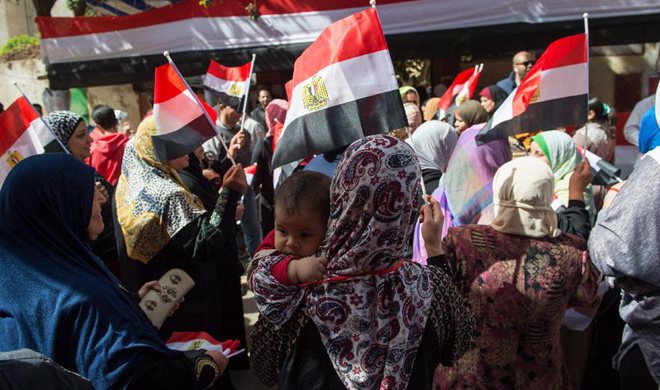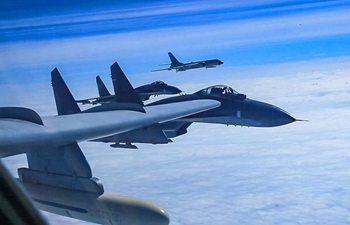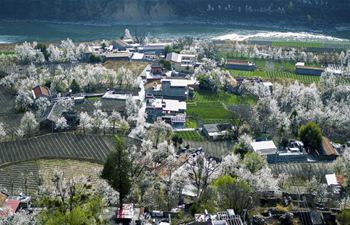By Fuad Rajeh
SANAA, March 26 (Xinhua) -- A fourth year of the conflict and the world's largest humanitarian crisis has begun in Yemen, while the international community continues to walk in a vicious circle of failure to address real obstacles to peace in the country.
Around 22.2 million out of a population of 27 million are in need of immediate humanitarian or protection assistance, with 11.3 million being in acute need. Basic services have largely deteriorated after most of the country's infrastructures have been damaged by ground shelling and Saudi-led airstrikes during the past three years.
The lack of trust among the local factions and the ambitions and agendas of the Saudi-led coalition stand on top of the obstacles to peace in Yemen, observers said.
The objectives of the Saudi-led coalition have swerved, observers said, adding that some member states of the coalition now have agendas undermining the government they are backing.
The insistence of the Houthis on keeping the political gains they have achieved and continuing the war adds to challenges before the peace as well, they said.
Nabil Albukiri, a researcher in international strategies, said the solution is in the hands of the Yemenis after regional and foreign players have made the situation more complicated.
"All Yemeni factions should make concessions starting with the withdrawal of the Houthis from the capital Sanaa and then forming independent military and security forces. The Yemeni factions should understand that they have failed to achieve military victories and all they have succeeded in is massive destruction of the nation," Albukiri said.
Theoretically, the internationally recognized government has driven the Houthi forces out of around 85% of the Yemeni land but practically it is controlling small parts of the liberated regions.
The coalition is running the largest parts of the liberated regions, including the temporary capital Aden, not successfully but through backing proxy forces that have been undermining the performance of the government.
Yaseen Al-Tamimi, a political writer and analyst, said there are scary trends to implement political agendas threatening the geopolitics of the country.
"Some factions that have been playing major roles in the war and politics such as the General People's Congress Party have become marginalized and so is the government which is being unable to act independently from its exile in Riyadh," he said.
The Houthi group killed former president Ali Abdullah Saleh, leader of the General People's Congress Party, in December and has since been trying to control his fans and all his party's assets.
"Regional and international players should find new and better ways to bridge the gap between the local factions, and those deeply involved in the war should not put their special interests ahead of the interest of the Yemeni people," Al-Tamimi said.
A new UN envoy for Yemen has assumed his job backed by international efforts to encourage the Yemeni factions to engage in incredible political process in order to end the conflict and the humanitarian crisis. Martin Griffiths said he will work hard to facilitate an inclusive political process based on the Gulf Initiative and its implementation mechanism, the outcomes of the national dialogue conference and UN resolution 2216.
Conditions set by each party to the conflict including insistence of the government that any solution must be based on the Gulf Initiative, the outcomes of the national dialogue conference and the UN resolution 2216 almost make peace impossible.
But it seems the lack of trust in the UN is one of the obstacles to establishing peace in the country as well.
Spokesperson for the Houthi group, also known as Ansarullah, Mohammed Abdulasalam said on Twitter: "there are no signs the international community is serious about finding a political solution to the conflict in Yemen. Some will take moves 'referring to EU efforts' to make the UN appear serving peace in Yemen though the UN has been dedicated itself to legitimizing and justifying the aggression on Yemen."
In this context, Hussain Albukhaiti, a political analyst, said the UN is not neutral in Yemen.
"Saudi Arabia is refusing a comprehensive ceasefire. This country began the war on us. But the UN does not point to Saudi Arabia as a party in the conflict and the international community continues to describe what this country is doing in Yemen as an intervention to restore the legitimacy of the Yemeni government, not a war."
"Hence, peace in Yemen requires a dialogue between Yemeni factions, and a dialogue between Yemenis and Saudi Arabia," Albukhaiti added.
He said foreign players are using the humanitarian crisis to achieve military gains instead of addressing the main reason for it which is the blockade.
The Saudi-led coalition imposed a blockade on all Yemeni sea, land and air ports as part of its military intervention in 2015.
The blockade has deepened the suffering of the Yemeni people after it has restricted all imports into a country that used to import 90% of its food needs and almost 100% of its medical supplies.
The UN says 45% of the country's medical facilities are currently functional. The rest has been partially and completely damaged in the fighting.
As a result, 16.4 million people lack access to adequate healthcare and 16 million lack access to clean water and sanitation.
Meanwhile, Rights Radar, an independent NGO, said in its report titled a three years of war and deadly blockade, that 27,000 people including 15,500 civilians have been killed and 58,000 including 35,000 civilians injured since the conflict escalated following the Saudi-led military intervention in March 2015.
About 2,980 people including 1,377 civilians have been maimed, 3.2 million internally displaced, 650,000 fled outside Yemen, and 750 forcibly disappeared, mostly politicians, activists and reporters, it said.
More than 26,000 houses and 6,800 public institutions have been partially and completely damaged, it said, while adding that 1,000 reporters have been forced to flee their homes to safe places inside Yemen or to flee to other countries.
Fuad Alsalahi, a political sociology professor at Sanaa University, said an end to the conflict in Yemen is being linked to the Saudi-Iranian conflict and the Russian and U.S. presence in Syria.
"Local factions have been acting as proxies and that is a huge problem as foreign players don't care about the tragedies and humanitarian losses here," Alsalahi said.

















